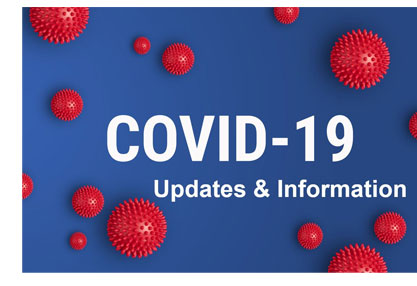THIS ISSUE'S HEADLINES
Recent Changes in Delaware Corporation Law
Applying the Cy Pres Doctrine to Charitable Donations
A Setback for Plaintiff’s Lawyers Everywhere
Stay Informed — PLDO COVID-19 Resource Library

RECENT CHANGES IN DELAWARE CORPORATION LAW
 Effective August 1, 2022, the Delaware General Corporation Law (the "DGCL") has been amended with important changes that could significantly impact companies chartered in Delaware, and even companies that are not. Effective August 1, 2022, the Delaware General Corporation Law (the "DGCL") has been amended with important changes that could significantly impact companies chartered in Delaware, and even companies that are not.
The change with the most potential for far-reaching impact is with respect to officer exculpation. The DGCL has long provided that the directors of Delaware corporations may be excused from personal liability for certain breaches of their fiduciary duty of care provided that such a provision is included in the corporation’s charter documents. However, the statute did not provide such protection for corporate officers. The amended DGCL now provides for exculpation of officers from liability for breaches of the duty of care. The amendments also expand the ability of boards to delegate authority to members of management in connection with the issuance of shares of common stock and options, and reduce the required stockholder approval for conversion of a Delaware corporation to a foreign entity.
PLDO Partner William F. Miller dives deeper into the DGCL amendments in his Advisory entitled, Recent Changes in Delaware Corporation Law. Understanding these changes to the DGCL is important whether or not your company is organized under Delaware Law. Clearly, if your company is organized in Delaware, these changes are directly applicable. However, even if that is not the case, in the event of a dispute or litigation involving your company, the parties’ legal counsel and in the case of litigation, federal and state courts throughout the country frequently look to Delaware law in the course of rendering advice or their decision on the issues in dispute.
For further information on Delaware's Corporate Laws or other business matters, please contact Attorney Miller at 508-420-7159 or email wmiller@pldolaw.com.
[back to top]

APPLYING THE CY PRES DOCTRINE TO CHARITABLE DONATIONS
 When organizations and charities receive charitable gifts, they must be cognizant of the intent of the donor. For example, a donor may gift a house to a college with the intent that the property be used for housing. Or, a donor may donate a sum of money to a hospital to use for cancer research. When organizations and charities receive charitable gifts, they must be cognizant of the intent of the donor. For example, a donor may gift a house to a college with the intent that the property be used for housing. Or, a donor may donate a sum of money to a hospital to use for cancer research.
The donor’s intent must be followed by the organization when utilizing the donation. However, in many instances, the intent of the donor becomes impossible or impractical to carry out. A common example is when a donation is made to an organization which ceases to exist. If this situation arises, then the cy pres doctrine may be utilized so the gift does not fail.
The rough translation of the Latin phrase “cy pres” is “as near as.” By statute, Rhode Island law provides for the application of cy pres as follows: “[i]n all cases of charitable gifts of real or personal estate, whether by deed or will, where the purposes of the donor cannot be literally carried into effect, a complaint may be filed for a cy pres application of the trust property; and at that time all proceedings, orders, and decrees shall be had and taken in the suit, to carry out the intents of the donor as near as may be, that the charity may not fail. . .” R.I. Gen. Laws § 18-4-1. When filing a complaint for application of cy pres, courts have the discretion to modify the use of charitable gifts when the original use is no longer possible.
Critically, however, Rhode Island courts have held that “[a] necessary prerequisite to an application of cy pres is a determination that the dominant intent of the person or persons creating the charitable [bequest] was general rather than specific in nature.” In re Estate of Conca, 1995 R.I. Super. LEXIS 166, at *4 (R.I. Super. Ct. Nov. 27, 1995). In fact, there is a presumption in favor of finding a general charitable intent. Depending on how strongly it can be documented that the bequest was of a non-specific nature, a cy pres petition may be avoided entirely.
For further information on charitable planning strategies, please contact Attorney Katherine B. Dunn at 401-824-5100 or kdunn@pldolaw.com.
[back to top]

A SETBACK FOR PLAINTIFF’S LAWYERS EVERYWHERE
 In 2022, the Supreme Court of Rhode Island issued an opinion in Martins v. Bridgestone Americas Tire Operations, LLC, that clarified key questions about the types of “contacts” that an out-of-state corporate defendant must have with Rhode Island for a court in that state to exercise personal jurisdiction over that defendant. In 2022, the Supreme Court of Rhode Island issued an opinion in Martins v. Bridgestone Americas Tire Operations, LLC, that clarified key questions about the types of “contacts” that an out-of-state corporate defendant must have with Rhode Island for a court in that state to exercise personal jurisdiction over that defendant.
Personal jurisdiction refers to the power a court has to make a decision regarding the party being sued in a case. Before a court can exercise personal jurisdiction over a party, the U.S. Constitution requires that the party have certain “minimum contacts” with that court’s home state. So, a defendant may object to a lawsuit by arguing that the court does not have personal jurisdiction because the defendant lacks the necessary minimum contacts with the state.
In the Martins case, the estate of a Rhode Island resident sued a tire manufacturer after the resident experienced a fatal automobile accident in Connecticut. The accident was alleged to have been precipitated by the tread of the vehicle’s front tire becoming separated, such that the vehicle left the road and struck a tree.
Finding that the tire manufacturer lacked the minimum contacts with Rhode Island necessary to require it to defend itself in that state’s courts, the Rhode Island Supreme Court focused on the fact that the tire was manufactured and installed on the vehicle in Tennessee, the vehicle was delivered to a dealer in Massachusetts, and the accident occurred in Connecticut.
In coming to this determination, the Rhode Island Supreme Court analyzed a recent decision of the United States Supreme Court in Ford Motor Co. v. Montana Eighth Judicial District Court, wherein the High Court held that Montana and Minnesota had specific personal jurisdiction over Ford for lawsuits related to two separate accidents in those states, because Ford had systematically served a market in Montana and Minnesota for the very vehicles that the plaintiffs allege malfunctioned and injured them in those states. Contrasting the facts of Ford – wherein not only did the accidents occur in those states, but Ford had purposefully availed itself of those states’ markets through “billboards, TV and radio spots, print ads, and direct mail," and had sold and serviced the two car models there – the Rhode Island Supreme Court in Martins found not merely that the accident did not occur in Rhode Island, but that the Bridgestone corporate defendants lacked any purposeful contacts with Rhode Island.
Given the interstate and even international nature of business in the 21st century, the guidance provided in these cases should prove helpful to corporations in every state. Yes, corporations should expect to be held to account for alleged negligence in product design or manufacture. However, what these cases confirm is that a corporation cannot be hauled into a distant state’s court unless the corporation had the necessary minimum contacts with that state to establish personal jurisdiction.
If you have any questions about jurisdiction or other legal matters, please contact PLDO Partner Aaron L. Weisman at 401-824-5100 or email aweisman@pldolaw.com.
[back to top]

 STAY INFORMED – PLDO COVID-19 RESOURCE LIBRARY STAY INFORMED – PLDO COVID-19 RESOURCE LIBRARY
PLDO’s team of attorneys continue to add updates and advisories regarding the pandemic and its impact on families, businesses and organizations. To access our COVID-19 Resource Library, click here.
[back to top]
|







